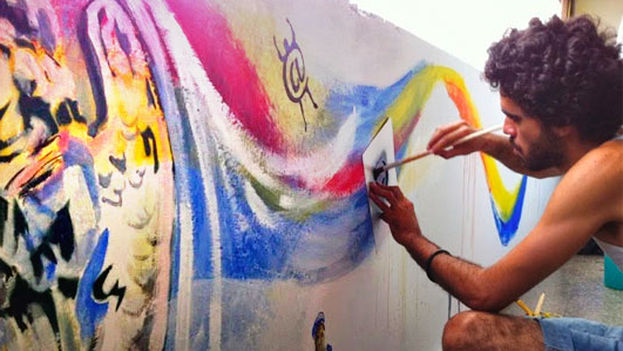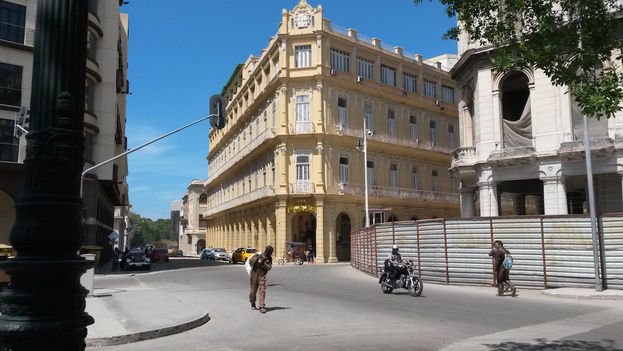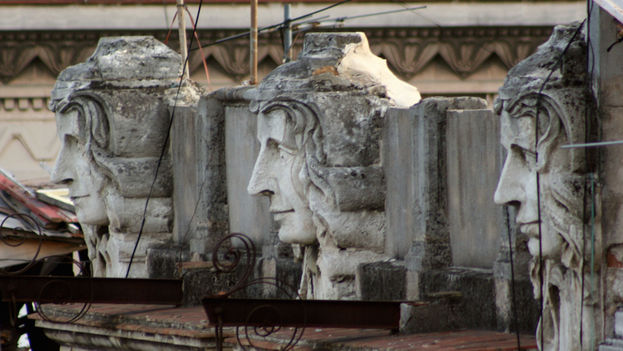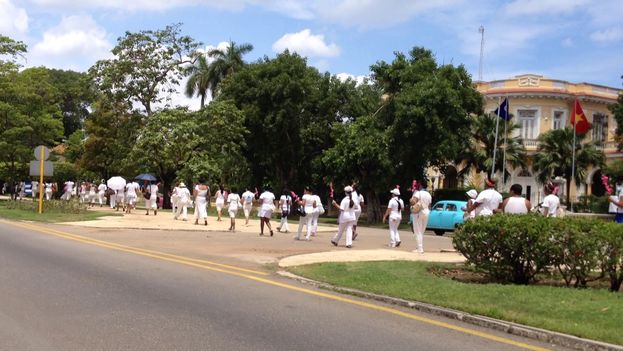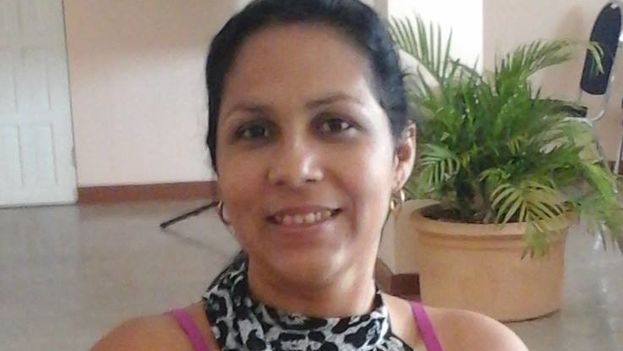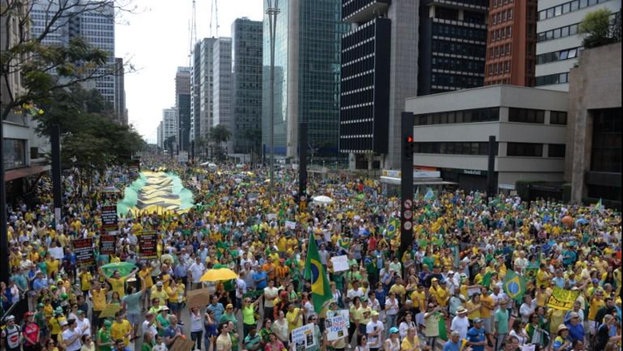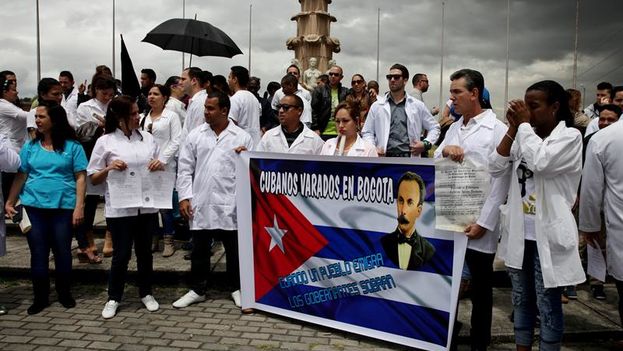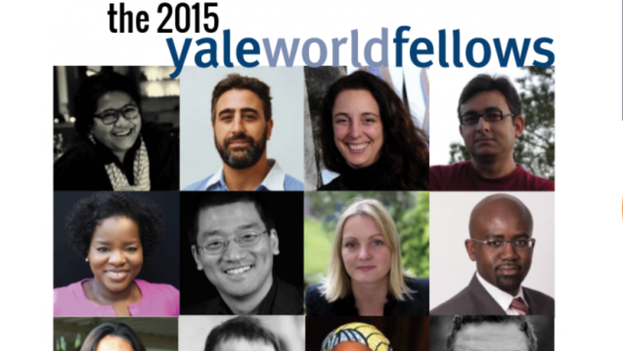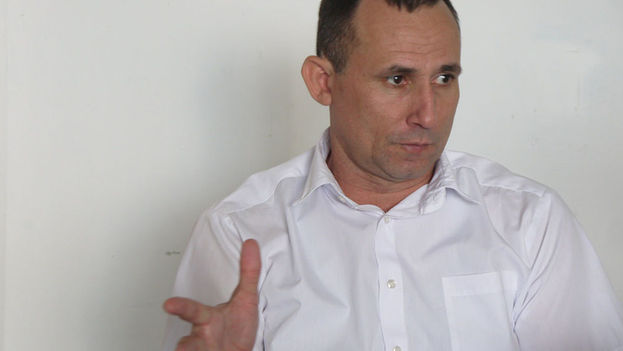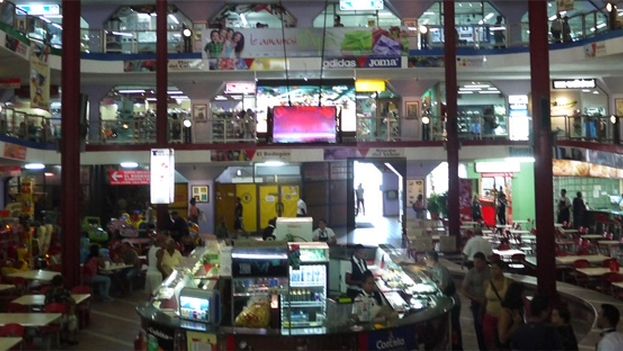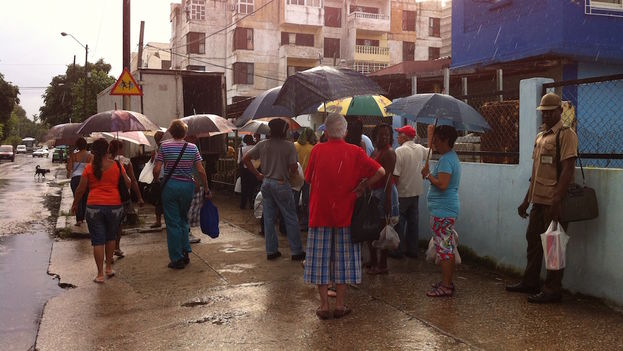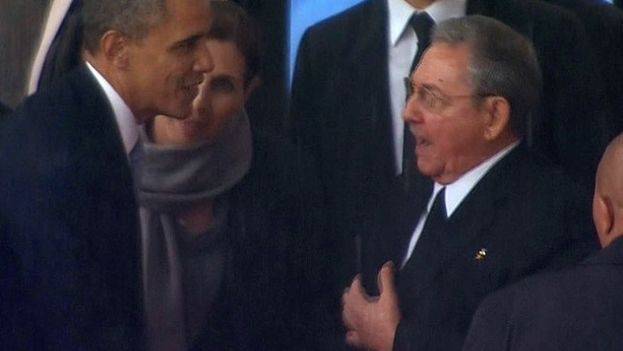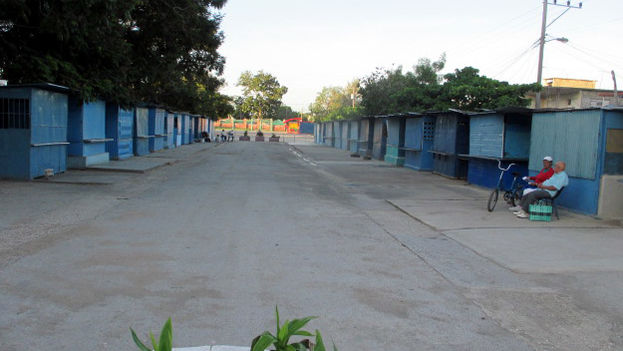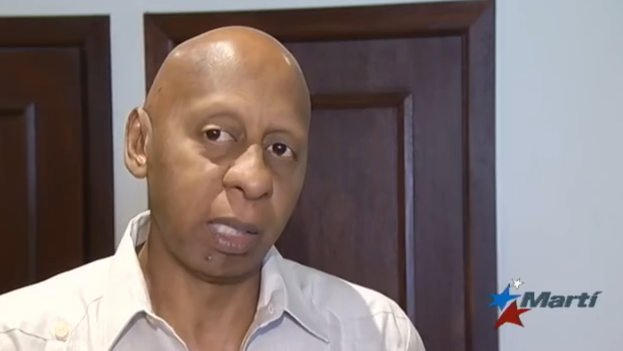The emblematic shopping center was shut down, and employees responsible for its security, who almost never have anything to do other than to check out the bags of customers suspected of theft, fluttered from one side to the other, trying to keep away the curious while exchanging details in their walkie-talkies, in a showy display worthy of a Hollywood action film like those that air on Cuban TV on Saturday nights. They had become the heroes of the day and were enjoying their role.
There is so much national apathy here that Cubans are probably the only people who, instead of running away, stand around in a place where the possibility of a bomb exploding has just been announced. However, seeing that nothing was happening that was worthy of more attention, the crowd started to disperse gradually, and towards 6 PM there were barely a handful of neighbors hanging around, more entertained than concerned about an event that broke the neighborhood’s daily routine.
This was the moment this casual writer chose to innocently approach the security guard in charge of controlling the wrought iron fence at the market’s side entrance on Árbol Seco Street, to find out why they had closed before the regular time. “We have a special situation,” a very serious and circumspect guard responded. “And why is that, is there a fire, a new assault on Western Union, another gas leak like the one a few months back?”
Then I felt a hand on my shoulder. It belonged to a young man in his thirties who had quietly come over to us and had witnessed the brief dialogue. His Suzuki motorcycle, parked at the curb, by the sidewalk, betrayed his status as an agent of the State Security. He approached in a friendly and conciliatory – even condescending – manner: “No. We are going to tell this comrade the truth,” he directed his comment to the uniformed guard, who instantly turned into an unwelcome guest. Then, turning towards me, his hand still on my shoulder, informed me there was a “bomb threat” at the market, and, for security reasons, they had evacuated the place. The threat had been phoned in; they were not even sure whether the bomb had been placed at this store or at another one, so they had decided to close several shops since the previous day, as a precaution.
“Any Cuban might be a mercenary of the Islamic State. We have to be better informed, comrade! Don’t you know what the internet is?” the security dude told me.
I put on my best face of shock and disbelief. “A bomb… in Cuba? Are you sure about that? And if the threat has been known since yesterday, why is the market closed today? A lot of us could have blown up, right?” The agent began to lose his good demeanor and withdrew his affectionate hand from my shoulder: “But why are you surprised, comrade? Don’t you know there was an Italian tourist who died because of a bomb at a Cuban hotel?” I responded: OK, but that was a bomb, not a threat. As far as I know, nobody has placed a bomb in Cuba and later warned that he did. That is something you see in American movies. People who place bombs prefer to let them explode without warning.
By now the young man was showing real disgust with this exasperating inquisition. “Look, comrade, everyone knows that after the triumph of the Revolution there have been lots of bombs and counterrevolutionary terrorist attempts where lots of innocent people have died.” I nodded and added “You’re right, this thing about bombs is nothing new. Even before the Revolution there were revolutionary ‘Action and Sabotage’ groups of the July 26th Movement that would place bombs and petards [pipe-bombs} in movie theaters, parks, and other public places.”
It was a low blow on my part, I know. This time, my impromptu instructor was momentarily speechless, he looked at me suspiciously and began to lose his temper, but he still did not quit his lesson. “Listen, comrade, you should get better informed. Look, if you have any relatives abroad, ask them to tell you what is in the cable news. There is a terrorist group called ISIS that has branches throughout the world, and Cuba has become part of the world and we are globalized, so any Cuban might be a mercenary of the Islamic State, just like the one that was going to place a bomb but was arrested in Florida recently. Are you listening? Ask your relatives to inform you. You need to get better informed, comrade, you have to get in tune with the times! Don’t you know what the internet is?”
“We need to consider that there are many in Florida who don’t want relations between Cuba and the US. I bet they have something to do with the bomb.”
That was the foot in the door I had been waiting for. ”Let me tell you something, young man, as far as I know, we Cubans are so well informed by Granma, all of the national media and Telesur that we don’t need any foreign news show, internet or any cable to know what is happening in Cuba and in the world. What’s more, if they don’t mention this in the national TV news, the business about the bomb is another enemy hoax to sow fear in the population. What’s more, I fail to see any team of firemen, cops, or street closings. People continue to circulate throughout the area and employees continue inside the market. What kind of bomb is it that can only kill customers?”
Obviously, the agent had no answer to that, so he ended the conversation and improvised a crumb: “That’s another matter. We need to consider that there are many in Florida who don’t want relations between Cuba and the US. I bet they have something to do with the bomb.”
I could not help laughing, “Well, finally! It had been slow in coming. So we no longer have an imperialist enemy and now we invent another one. OK. We need to keep up the belligerence somehow. What would happen to the Revolution if it became orphaned of its enemies?”
Suddenly, the young security dude realized that he had been the victim of a scam and scowled, but it was in vain. People around us laughed heartily. An old neighbor from across the street sealed the brief episode with a solemn sentence, “A bomb was placed 56 years ago but it has failed to explode!” A general peal of laughter was the most convincing popular judgment on this unusual “bomb threat” in the Carlos III Market.
Translated by Norma Whiting
